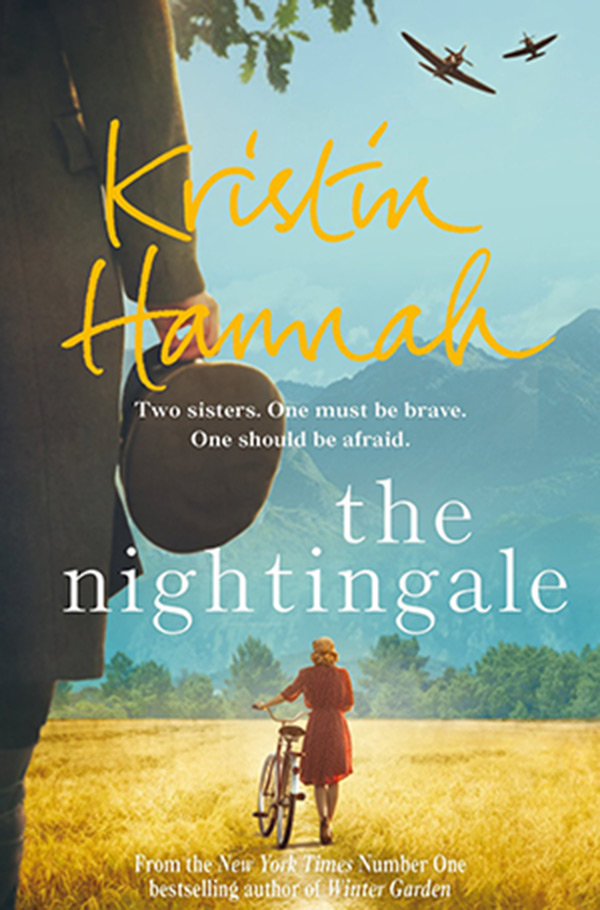The Nightingale Book is a poignant tale that encapsulates the struggles of two sisters in France during World War II, highlighting the themes of love, courage, and sacrifice. This novel, penned by Kristin Hannah, has captivated readers worldwide, making it a must-read for those interested in historical fiction and human resilience. In this article, we will delve deep into the intricacies of "The Nightingale," exploring its themes, characters, and the historical context that frames the story.
Published in 2015, "The Nightingale" has received widespread acclaim for its powerful narrative and emotional depth. The story is set against the backdrop of Nazi-occupied France, where the lives of the protagonists are irrevocably changed by the war. This article will provide an in-depth analysis of the characters, the plot, and the impact of the book on contemporary literature, demonstrating why it remains relevant today.
As we navigate through the pages of "The Nightingale," we will explore the significance of its core themes and the portrayal of women's roles during the war. With a focus on the experiences of Vianne and Isabelle, the two sisters at the heart of the story, we will uncover the lessons of bravery and sacrifice that resonate with readers across generations.
Table of Contents
- Biography of Kristin Hannah
- Plot Summary of The Nightingale
- Main Themes in The Nightingale
- Character Analysis
- Historical Context of The Nightingale
- Impact of The Nightingale on Literature
- Reader Reception and Reviews
- Conclusion
Biography of Kristin Hannah
Kristin Hannah is an acclaimed American author known for her compelling storytelling and emotional depth. Born on September 9, 1960, in Garden Grove, California, she has published over 20 novels, many of which have become bestsellers. "The Nightingale" is one of her most successful works, resonating with readers for its exploration of women's experiences during the war.
| Name | Kristin Hannah |
|---|---|
| Date of Birth | September 9, 1960 |
| Nationality | American |
| Notable Works | The Nightingale, The Great Alone, Firefly Lane |
Plot Summary of The Nightingale
The Nightingale follows the lives of two sisters, Vianne and Isabelle, who take different paths during the German occupation of France. Vianne, the older sister, is focused on survival and protecting her family, while Isabelle is rebellious and determined to fight against the Nazis.
The story begins in 1939, with Vianne living in the countryside with her husband and daughter, while Isabelle, a young and headstrong woman, is expelled from boarding school and returns home. As the war escalates, Vianne’s husband is sent to the frontlines, and she must face the harsh realities of occupation.
Isabelle, on the other hand, joins the French Resistance, risking her life to save others. The novel intricately weaves their stories together, showcasing their growth and the sacrifices they make for love and country.
Main Themes in The Nightingale
Love and Sacrifice
One of the most prominent themes in "The Nightingale" is love and sacrifice. Both sisters embody different aspects of love—Vianne's maternal love and Isabelle's passionate love for freedom. Their sacrifices highlight the lengths one will go to protect loved ones and fight for what is right.
Resilience and Survival
The theme of resilience is woven throughout the narrative. The sisters face unthinkable challenges, yet they find the strength to endure. Their survival stories are a testament to the human spirit's ability to overcome adversity.
Character Analysis
Vianne Mauriac
Vianne is portrayed as a nurturing and protective figure. Her character evolves from a passive woman focused on domestic life to a courageous mother willing to risk everything to protect her children and friends. Her journey reflects the transformation many women underwent during the war.
Isabelle Rossignol
In contrast, Isabelle is characterized by her rebellious spirit and determination. Her involvement in the Resistance showcases her bravery and commitment to fighting oppression. Isabelle's character serves as an inspiration, embodying the fight for freedom.
Historical Context of The Nightingale
The Nightingale is set during World War II, a time of significant upheaval and change. The novel effectively captures the experiences of women during this period, highlighting their roles in both the home front and the Resistance. The historical context adds depth to the characters' motivations and actions, making their stories all the more poignant.
Impact of The Nightingale on Literature
Since its publication, "The Nightingale" has had a profound impact on readers and the literary community. It has sparked discussions about women's roles in history and the importance of resilience in the face of adversity. The novel's popularity has led to a resurgence of interest in historical fiction, particularly stories centered around women's experiences during wartime.
Reader Reception and Reviews
The Nightingale has received numerous accolades and positive reviews, with readers praising its emotional depth and well-drawn characters. It has become a book club favorite, encouraging discussions about historical events and personal sacrifice.
- Goodreads Rating: 4.56/5
- Amazon Rating: 4.8/5
- New York Times Best Seller: Yes
Conclusion
In summary, "The Nightingale" is more than just a historical novel; it is a powerful exploration of love, sacrifice, and resilience. Kristin Hannah's masterful storytelling brings to life the struggles of two sisters during one of history's darkest times. This book is a reminder of the strength of the human spirit and the enduring impact of love in the face of adversity.
We invite you to share your thoughts on "The Nightingale" in the comments below. Have you read the book? What were your impressions? If you enjoyed this article, consider sharing it with others or exploring more of our content on historical fiction.
Thank you for reading, and we hope you return for more insightful articles!




